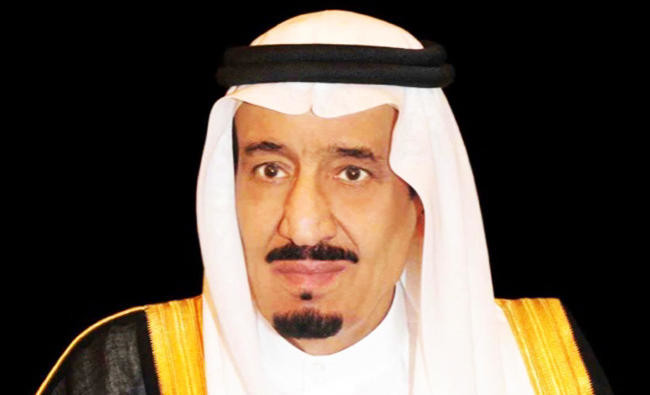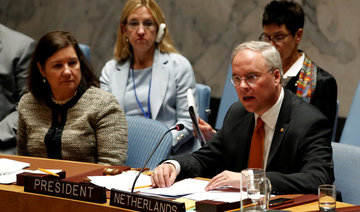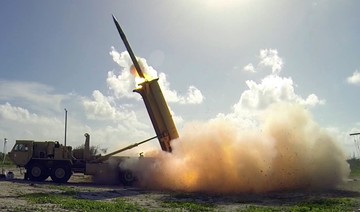JEDDAH: Saudi Arabia signed an agreement on Thursday to deposit $2 billion into the account of Yemen’s central bank, under the instruction of King Salman, the Saudi Press Agency reported.
The agreement was signed by the Kingdom’s Finance Minister Mohammed Al-Jadaan and Yemen’s Central Bank Governor Dr. Mohammed bin Mansour Zammam in Riyadh.
In January 2018, King Salman issued a directive to transfer $2 billion to Yemen’s central bank to “alleviate the suffering” of the Yemeni people.
In remarks following the signing ceremony, Al-Jadaan said that the agreement was a continuation of the Kingdom’s support for the Yemeni people, bringing the total of Saudi deposits at the central bank to $3 billion.
He said that this would enhance the financial and economic situation of Yemen, especially the Yemeni riyal exchange rate, which would be reflected positively in the living conditions of citizens.
Saudi Arabia has affirmed its continuing support for the Yemeni government and determination to assist it to restore security and stability to the country.
Last month, the King Salman Humanitarian Aid and Relief Center (KSRelief) also signed six agreements with organizations in Riyadh worth $3 million to help Yemenis displaced and injured by Houthi rebel actions.
KSRelief has targeted areas such as Maarib province, Al-Jouf, Imran, Sanaa, and Dimaar for the rehabilitation of child soldiers rescued from the Houthi rebels.
Earlier, Saudi Ambassador to Yemen Mohammed Al-Jabir told Arab News that the assistance provided by the center was not only supplying foods, medicines and clothes to distressed Yemenis.
There are some 2 million Yemenis working in the Kingdom and they send more than $10 million to their families in Yemen.
The bailout is expected to boost Yemen’s financial and economic situation while bolstering the Yemeni riyal. As the value of the riyal goes up, the living conditions of Yemeni citizens will improve.
“It’s not a loan, it’s a deposit and the legitimate Yemeni government will not have to pay it back,” a source close to the Saudi government said in January, according to Reuters.
The riyal currently trades at 500 to the dollar, down from about 215 before the war, a serious depreciation for a country that relies heavily on imports of basic foodstuffs.
In 2016 the Yemeni government moved the central bank to its second city Aden from the capital, where the Houthis operate their own rival central bank.
Saudi Arabia signs agreement to deposit $2bn in Yemen central bank
Saudi Arabia signs agreement to deposit $2bn in Yemen central bank

Saudi, Iraqi defense ministers discuss cooperation in phone call

RIYADH: Saudi Minister of Defense Prince Khalid bin Salman received a phone call from his Iraqi counterpart Thabet Al-Abbasi on Tuesday, the Saudi Press Agency reported.
The two discussed Saudi-Iraqi relations and cooperation between the two countries in the military and defense fields, SPA added.
They also spoke about regional developments and shared efforts to enhance security and stability in the region and beyond.
RSAF personnel complete training in US missile defense system

- US-led THAAD program involved operational exercises, combat simulations
- Training part of Kingdom’s strategy to enhance armed forces’ capabilities
RIYADH: A second company from the Royal Saudi Air Force graduated this week after completing their training in an American anti-ballistic missile defense system.
The graduation ceremony, held at Fort Bliss in El Paso, Texas, was attended by Maj. Gen. Pilot Abdullah bin Mohammed Al-Rabiah, the Royal Saudi Air Defense Forces Institute commander and other representatives from the two countries.
The US-led program involved technical and operational exercises, combat simulations and advanced field training supervised by representatives of the manufacturers of the Terminal High Altitude Area Defense system and military experts, the Saudi Press Agency reported.
Another company of RSAF graduates completed the program last year as part of the Ministry of Defense’s strategy to enhance the capabilities of its forces through professional training.
The THAAD system is considered one of the most advanced and precise methods to tackle ballistic missile threats and has been adopted by the Kingdom as part of its air defense strategy.
Saudi fund signs $10m loan for renewable energy project in Solomon Islands

- Deal will help island nation reduce its reliance on conventional energy
- Since 1974, SaudFund for Development has financed 800 projects worth more than $21bn
RIYADH: The Saudi Fund for Development on Tuesday signed a $10 million development loan agreement with the Solomon Islands to support a renewable energy project.
The deal was signed by the fund’s CEO Sultan Al-Marshad and the Solomon Islands’ Finance and Treasury Minister Manasseh Sogavare.
The project aims to develop renewable energy infrastructure in the country by establishing solar power plants with a total capacity of 35.5 megawatts and energy storage systems.
This will reduce its reliance on conventional energy and support sustainable development goals for economic and environmental growth, the Saudi Press Agency reported.
The loan is the fund’s first to the Solomon Islands and demonstrates its commitment to supporting developing countries and small island states in overcoming economic, social and environmental challenges.
Since its foundation in 1974, the fund has financed more than 800 projects worth more than $21 billion in more than 100 countries.
Through its global initiatives, the fund enhances livelihoods, expands access to services and empowers communities, fostering inclusive growth and creating opportunities worldwide.
On the sidelines of the signing, Al-Marshad and his delegation met Solomon Islands Prime Minister Jeremiah Manele. They discussed the fund’s 50-year development efforts and ways to strengthen cooperation.
Five Arabian sand gazelles born in Buraidah Oasis

- Environmental achievement reflects national efforts to resettle wildlife, restore ecological balance in the Kingdom, and enhance the sustainability of its natural resources
- Center continues to implement its strategic plans to preserve wildlife and enrich biodiversity in the Kingdom, in line with the SGI, the National Environment Strategy, and Vision 2030
RIYADH: The National Center for Wildlife has announced the birth of five endangered Arabian sand gazelles in the Buraidah Oasis, as part of the center’s breeding and resettlement programs.
This environmental achievement reflects national efforts to resettle wildlife, restore ecological balance in the Kingdom, and enhance the sustainability of its natural resources, the Saudi Press Agency reported on Tuesday.
The center continues to implement its strategic plans to preserve wildlife and enrich biodiversity in the Kingdom, in line with the Saudi Green Initiative, the National Environment Strategy, and Vision 2030.























